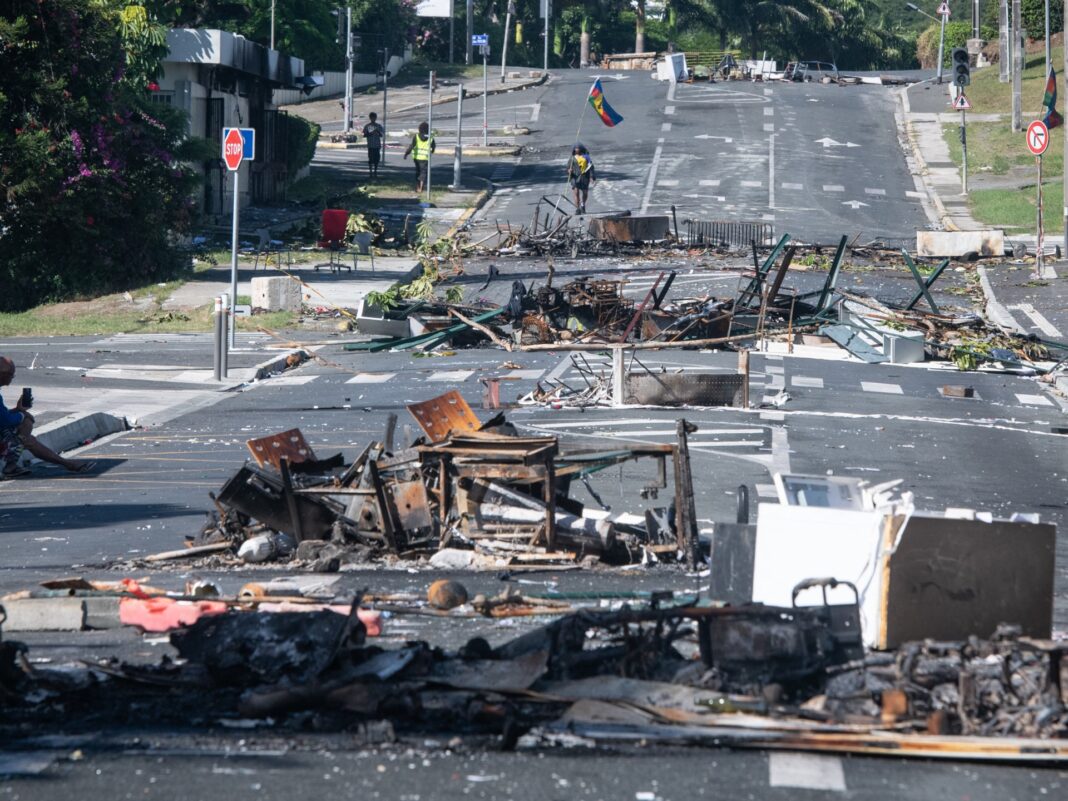Mass protests erupted in New Caledonia this week after France’s parliament voted to allow French residents who have lived in the Pacific Islands territory for 10 years or more to vote in provincial elections.
The French government has argued that these reforms uphold democracy in the archipelago. But local people – particularly those from the Indigenous Kanak community, who make up 40 percent of the islands’ population – fear this will undermine their efforts to win independence from France.
France deployed troops to New Caledonia’s ports and international airport, banned TikTok as the government imposed a state of emergency on May 16.
Anger among the Indigenous Kanak people has been simmering for weeks over plans to amend the French constitution, diluting a 1998 accord that limited voting rights.
Hundreds of heavily armed French marines and police on Saturday patrolled the capital, Noumea, where streets were filled with debris following several nights of looting, arson and armed clashes in which six people have died.
French officials have accused a pro-independence group known as CCAT of being behind the protests. Ten activists accused of organising the violence have been placed under house arrest, according to authorities.
New Caledonia has been French territory since colonisation in the late 1800s. Centuries on, politics remains dominated by debate about whether the islands should be part of France, autonomous or independent – with opinions split roughly along ethnic lines.







